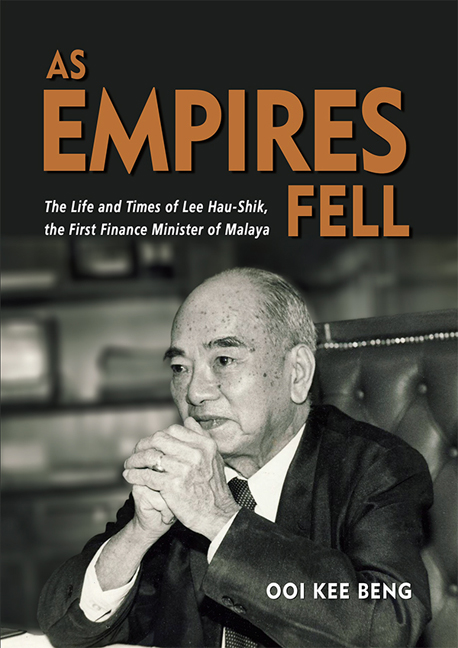Summary
Seldom does one get a chance to write a biography of a historically important personality based on that person's own private papers. Exactly such an opportunity was given to me in 2005 when the Tun Dr Ismail Abdul Rahman papers were offered for safekeeping at ISEAS Library. Over the following few years, three books came out of that heap of papers.
Another such chance was offered to me again a few years later when the family of Lee Hau-Shik—the first finance minister of the Federation of Malaya, one of the founders of the Malayan Chinese Association, and also one of the persons responsible for the highly successful innovation of fielding a coalition of race-based parties back in 1952 in Kuala Lumpur—decided after years of hesitation to also place the man's private papers at ISEAS Library.
While the Ismail papers came in five or six plastic bags, the Lee Hau-Shik papers arrived in over 50 full boxes. Having too few sources hampers a researcher, no doubt, but having too much can be an even greater problem. The documents and pictures reflected the many periods of Hau-Shik's life, but often, they merely provided bits of information stretched over time, multilayered the ways life is played out for each of us, in essence.
However, since the main threads of Hau-Shik's life are known, conjuring a narrative out of the material was in itself not all that difficult. But in order to inject the right historical significance into his story, and to tell a tale that holds lessons for the present time and retains the attention of the modern reader, I decided that it was necessary to contextualize his life into objective periods. After all, the history of Southeast Asia in the first half of the twentieth century was such a tumultous one, and if important dynamics were not highlighted, then the details of his life would lose potency and appear interesting only to those personally involved in some fashion.
What we end up with here, then, is a unique kind of biography. In effect, I must admit that I am opportunistically using the life of Lee Hau-Shik as a telescopic lens through which larger stories can be told within which his private one is played out in—here passively or as a supporting actor perhaps, but there definitely as the lead making up his own lines as he went along.
- Type
- Chapter
- Information
- As Empires FellThe Life and Times of Lee Hau-Shik, the First Finance Minister of Malaya, pp. xi - xviPublisher: ISEAS–Yusof Ishak InstitutePrint publication year: 2020

